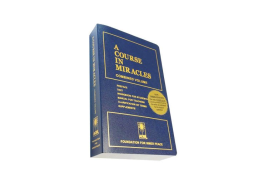[This is Part 2 of a 2 part series. The first part is “Course in Miracles” and the Holy Relationship.]
“Is it wise to teach Synergy (gentle lovemaking, which emphasizes relaxation rather than performance) without also teaching about the need to work on our egos?” asked someone.
Yes it is. Synergy, or making love in a way that heals the emotional alienation between mates, is one of the most powerful ways to quiet the ego – or multiple egos as some traditions hold. With this approach, we do not battle our ego. Instead we gradually hear Spirit more clearly than ego. Some spiritual lore insists that the path of sacred union can even lead to a qualitative shift and spiritual transcendence.
For those not familiar with the “ego-Spirit” model, the ego is the defensive, frightened part of us, which believes it is separate from the Divine. It desperately seeks to protect and often aggrandize itself, and we regularly accumulate a lot of bad karma endeavouring to meet its objectives. At base, it is nothing more than a fearful projection outward of a sense of lack.
The ego is continually preoccupied with the belief in scarcity that gave rise to it.1A Course in Miracles, Foundation for Inner Peace, Chapter 4.II.6
According to various spiritual traditions, the collective efforts of our egos alone keep the whole material plane dance in motion. Spirit, on the other hand, is the part of us that knows we are still one with all of Creation, immortal and beyond gender.
While engrossed in the ego’s drama, we generally find it very hard to hear Spirit – let alone remember who we really are, or experience the full reality behind our three-dimensional drama (enlightenment).
Why does sex affect spiritual awareness?
Because the mating urge is the means we adopt on this plane to ensure our recurring sense of lack – thereby dimming our spiritual perception. When we choose to unite with passion, it quickly leads to a drop in dopamine in the reward centre in a primitive part of the brain known as the limbic system. Think of the limbic system as the home of our mammalian survival software.
A Course in Miracles explains that we believe that when we meet to love each other, union “diminishes” us. This feeling of weakness discourages continued union with each other, “allowing but limited indulgences in “love,” with intervals of hatred in between.” We believe that we must separate from each other to rebuild our strength. This not only weakens our resolve to achieve communion; it causes us to fear love.
Thus is love seen as treacherous, because it seems to come and go uncertainly, and offer no stability to you. You do not see how limited and weak is your allegiance, and how frequently you have demanded that love go away, and leave you quietly alone in “peace.” 2Course in Miracles, Chapter 29.I.4-7
In between our indulgences in ‘love’, we feel like something is missing. This sets up an addictive cycle of cravings and fearful drops in energy that gradually alienates us from our mates. If we opt for celibacy, we crave a lover…thanks to this innate mating urge.
The tarot deck’s devil card (that icon of lust) symbolises this aching yearning. The impulsive sexual urge keeps male and female hungry for each other, but held apart, unable to achieve true union and lasting fulfilment.
As Lao Tzu said over two thousand years ago, “The cords of passion and desire weave a binding net around you….Trapped, you cannot experience liberation.”3Hua Hu Ching : Unknown Teachings of Lao Tzu, trans. Brian Walker, Harper SanFrancisco (1995), section 70 In short, impulsive sexual behaviour fuels the ego, keeps us fearful of closer union, and anchors our perception to the material plane.
Hole in the heart
A few of us find some genuine comfort in solo spiritual practices, but most of us suffer from an empty hole inside, whether we opt for passionate sex or celibacy. We try to fill that feeling of emptiness with material things, attention from others, or soothing substances or behaviours that ultimately increase our isolation.
Our painful search for wholeness keeps our ego’s voice very loud indeed: “We are not safe; there isn’t enough; we must hoard our things; we must achieve dominance; it’s all hopeless; it’s someone else’s fault; might makes right; God favours us and condemns the others,” and so forth.
Synergy, or gentle intercourse that nurtures your mate rather than being a search for pleasure for your body, goes right to the heart of our built-in lack programming. It offers a satisfying middle path between instinctive sexual indulgence and lonely celibacy.
While the ego cannot conceive of love without sacrifice, this practice produces no feelings of sacrifice. We realize that we are safe to love each other. Synergy allows us to stay close to each other so we can gradually replace our sense of lack with a warm, satisfying sense of completeness.
Humanity rarely opts for this natural solution. Our brains are designed not to stumble upon it. From an evolutionary perspective it’s a loser; it passes on no genes.
The attraction of guilt
For some of us, an even more formidable barrier exists between humanity and this gentle lovemaking that quiets the ego: guilt. So many religions and customs have linked sex with guilt that few are entirely unaffected. We may rebel against this unfortunate guilt-sex link by proving how “sex-positive” we are. This tends to suck us into the depleted-addicted cycle described above.
Or we may buy into the link between sex and guilt. Then we either avoid sex or – more likely – find its “forbidden” status hooks us into an addictive cycle made even stronger by anxiety. As we will see, our neurochemistry actually pushes us in this latter direction.
Should there be a link between sex and guilt? Absolutely not. Yet it is one of the most predictable repercussions of our brain’s mating program. Fertilization-driven sex has a neurochemical hangover built right into it. Its lingering effects can make us feel extremely vulnerable, cut off from our Source, and defensive.
No wonder people frequently conclude that Someone is punishing them for engaging in sex. Once a person decides he is being punished, it is natural for him to feel guilty.
No one punishes us. Following our instincts, we use the mechanism of sex to create the recurring sense of lack that keeps the ego’s fear-based voice loud. In short, we set off this neurochemical hangover ourselves.
No sin is involved
Ours is merely a messy, often uncomfortable, collective experiment. It hasn’t offended our unconditionally loving Creator. Nor has the harmonious reality of Creation beyond our little experiment changed at all. In fact, A Course in Miracles says we will eventually tire of our adventure and be willing to set aside our mating thrills (that is, stop seeking comfort for the body by means that bring us pain) in order to tap the deep wholeness and peace that will restore us to full spiritual awareness. How? Through a “holy relationship”.
Ironically, guilt is one of the most powerful triggers for compulsive sexual behaviour. Why? Dopamine rises sharply when we take risks or do something novel. These behaviours often led our ancestors to new territories, more resources, and more mates – hence our brain chemical “reward” for engaging in them.
When we engage in an activity that we believe is “naughty” or even “sinful”, we believe that we are taking a risk. The result? We get a bigger-than-usual neurochemical thrill…followed by an especially nasty hangover. Some people easily convince themselves that we’re being punished for sinning, which can destroy our sense of self-worth and further erode our judgment.
In short, unless we release the idea that sex is sinful, our spiritual yearnings may actually work against us by causing us to believe we are damned, which only makes the forbidden behaviour seem more risky and thrilling. When remorse overtakes us, we may be so desperate to feel good again that we rush back to the “rewarding” behaviour. After all, it offers the temporary oblivion of a sure brain-chemical buzz.
See how pornography hooks people? And why it tends to escalate into more outrageous (i.e., more novel and risky) behaviours? Not sinfulness, but rather a neurochemical addiction cycle is the culprit.
We can actually escape this cycle more easily by unhooking guilt from sex and re-framing our circumstances in terms of our neurochemical programming. Even though we may take some rather ugly actions while under the influence of this natural phenomenon, we are fundamentally innocent. We may be tricked by our own greedy genes (until we learn how to outsmart them), and we may do some wretched things with ghastly consequences. But that doesn’t make sex sinful.
Sex as solution
When we make love with the emphasis on giving, and without striving for orgasm, there is no neurochemical jolt afterward. In fact, a Catholic acquaintance once observed that he doesn’t feel guilty when making love without orgasm. This simple observation – made by a man who grew up hearing that sex was sinful – points the way to using union to realign with Divine Will.
It is not sex that makes us feel guilty. It’s the aftermath of dopamine that surges (with arousal/climax)…and then crashes. This cycle leaves us very vulnerable to pursuing anything that promises another hit of intense stimulation.
Now you are being shown you can escape. All that is needed is you look upon the problem as it is, and not the way that you have set it up. How could there be another way to solve a problem that is very simple, but has been obscured by heavy clouds of complication, which were made to keep the problem unresolved? Without the clouds the problem will emerge in all its primitive simplicity. The choice will not be difficult, because the problem is absurd when clearly seen. No one has difficulty making up his mind to let a simple problem be resolved if it is seen as hurting him, and also very easily removed.4Course in Miracles, Chapter 27.VII.2
Want to move beyond the built-in attraction to an activity that creates a recurring sense of inner lack? Learn to make love in a way that leaves your energy topped up rather than depleted.
Perhaps some lovers can achieve this goal (making love without orgasm) by force of will. Many find, however, that a gradual, gentle approach based on mutual selfless giving is far more effective. By contrast, strenuous Tantra and Taoist techniques for avoiding orgasm are like battling with the ego. Mastery gained this way feels to the ego like a “death”, which may account for some sacred Hindu artwork.
Comfort rather than conflict
Experiment with an approach that comforts and nurtures the ego into aligning with divine will, rather than battling with it. Generous affectionate lovemaking, without the neurochemical fallout from impulsive passion, allows the ego to relax and experience the benefits of oneness without fear. Perhaps this less combative approach accounts for some of the superficially startling Hindu artwork that shows the goddess of tantra calmly removing the ego (symbolised by her head) while a couple blissfully makes love amid symbols of spiritual attainment.
The solution of lust-free intercourse as a way to enhance spiritual perception may also be at the heart of the mystery that Christ came to teach. The Christians who founded the Roman Catholic Church lost (or never had) this important thread. However, the early gospels that turned up 70+ years ago in a cave in upper Egypt record that Jesus came to Earth to reunite all who had been separated. He achieved this in the Sacrament of the Bridal Chamber.
[The] embrace that incarnates the hidden union… is not only a reality of the flesh, for there is silence in this embrace. It does not arise from impulse or desire; it is an act of will.” 5The Gospel of Philip: Jesus, Mary Magdalene, and the Gnosis of Sacred Union, Inner Traditions, Rochester, Vermont (2004), L. 122
We are reborn by the Christ two by two. In his Breath, we experience a new embrace; we are no longer in duality, but in unity.6The Gospel of Philip: Jesus, Mary Magdalene, and the Gnosis of Sacred Union, L. 74
Compare this quote from A Course in Miracles, 2000 years later:
The ark of peace is entered two by two… And as this purpose is fulfilled, a new world rises in which sin can enter not, and where the Son of God can enter without fear and where he rests a while, to forget imprisonment and to remember freedom.7Course in Miracles, Chapter 20.IV.6.
Celibacy versus union
The major religions have long recognized celibacy (without lustful thoughts or actions) as a path to spiritual clarity. Most, however, have overlooked the spiritual gains from joining with another in a balanced, lust-free union.8For example, with (presumably) no knowledge of this mystery and a determination to populate the earth with obedient Catholics, the Church has condemned sexual continence during intercourse. Citing an express mandate of Pope Pius XII, on 30 June 1952, the Sacred Congregation of the Holy Office seriously admonished all writers to refrain from these suggestions and forbade priests and spiritual directors ever to suggest that there was, in the light of Christ’s law, nothing objectionable about “a reserved embrace”.
Both paths have risks. Celibate spiritual seekers often use their spiritual attainments to create a pecking order with their egos at the top. This makes it hard for their devotees to experience their own divinity, as everyone concerned believes the guru is unique and holier than others. In addition, how many celibate masters have discovered that the sex urge still rules them when fertile opportunities arise in the form of doting young devotees?
The chief risk of using gentle, affectionate sex to accomplish the goal of spiritual clarity is obvious. While having intercourse, once can easily fall back into primitive brain programming and the separation-fostering sexual cycle.
In contrast, the path of “dual cultivation”, as Lao Tzu called it, has advantages of its own. First, as vision clears with the practice and you see the inner beauty (and even divinity) of your mate, you see it in an equal – not a superior master. You thus understand that the Light you see in your mate is also in you. Second, you do express and satisfy (albeit differently) your sexual urges with this practice by allowing yourself to stay connected until you feel fed and complete. So you are not as vulnerable to temptation as celibates are.
Third, because you create a shared sense of wholeness, there is virtually no temptation to see yourself as superior to anyone to fill any lingering sense of lack. Finally, A Course in Miracles, at least, insists that sacred union is a far more efficient path to enlightenment than fighting against sin or engaging in long periods of meditation aimed at detachment from the body.9Course in Miracles, Chapter 18.VII.4
Here is the ultimate release which everyone will one day find in his own way, at his own time. You do not need this time. Time has been saved for you because you and your brother are together. This is the special means this course is using to save you time. You are not making use of the course if you insist on using means which have served others well, neglecting what was made for you. 10Course in Miracles, Chapter 18.VII.6
To conclude, Synergy, or controlled intercourse, is most definitely about overcoming the ego – not by fighting it. Rather, by gently healing uneasiness through nurturing union and wholeness. Generous, affectionate shared intimacy dedicated strictly to each other’s wellbeing, miraculously counters the chronic sense of lack arising from conventional sex. Without this fuel, our egos calm down. Sensations of wholeness quiet the neurochemical storms of defensiveness, scarcity, and feelings of sinfulness. Heightened spiritual perception follows.
In this “happy dream” relationship stage we are much more aligned with the unconditional love and oneness of the Reality behind illusion. Having tasted oneness without fear, we Awaken more easily.
This holy relationship, lovely in its innocence, mighty in strength, and blazing with a light far brighter than the sun that lights the sky you see, is chosen of your Father as a means for His Own plan.11Course in Miracles, Chapter 22.VI.4 What seemed once to be a special problem, a mistake without a remedy, or an affliction without a cure, has been transformed into a universal blessing. Sacrifice is gone. And in its place the Love of God can be remembered, and will shine away all memory of sacrifice and loss.12Course in Miracles, Chapter 26.II.7



